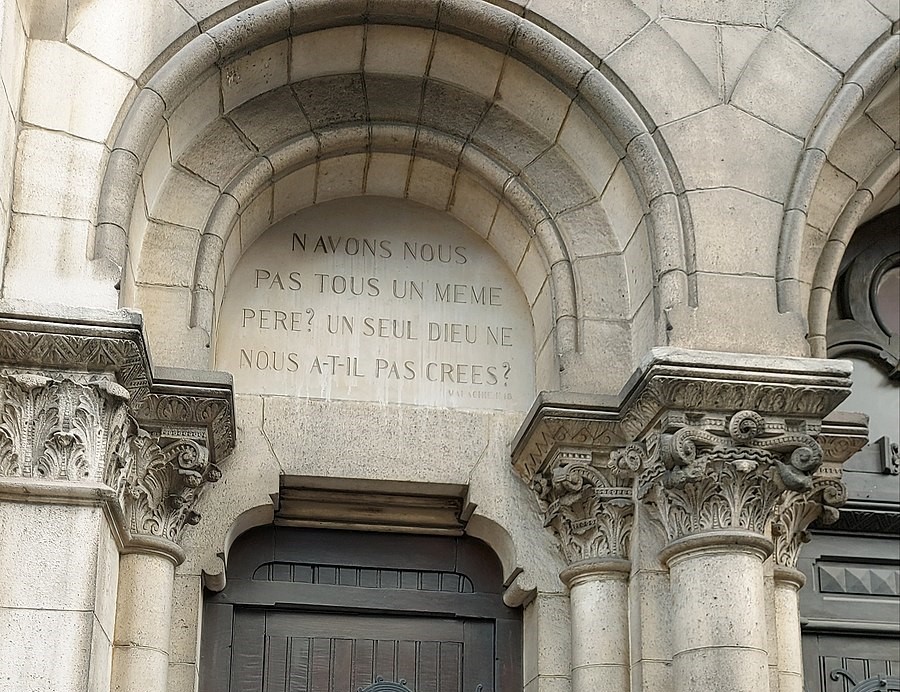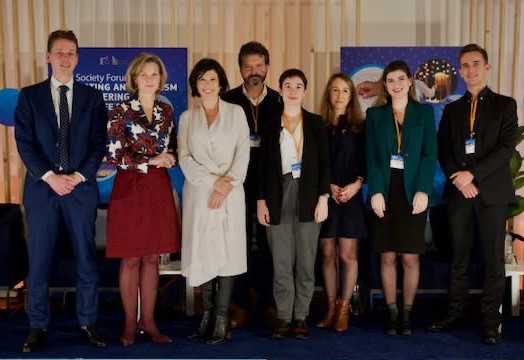The European Commission organized last week a seminar in Brussels with close to 250 participants from EU institutions and Jewish communities from across all EU member states and candidate countries to discuss cooperation on new joint initiatives towards a European society free of antisemitism where Jewish life prospers in Europe.
The seminar was organized in the form of workshops and coincided with the UN International Day of Tolerance (16 November). It follows the adoption by the European Commission in October 2021 of its first ever EU strategy on combating antisemitism and fostering Jewish life.
The strategy outlines close to 100 measures built on three pillars: preventing and combating all forms of antisemitism; protecting and fostering Jewish life in the EU; and education, research and Holocaust remembrance.
Combating antisemitism in the EU is a shared responsibility on EU and Member State levels. Following the EU strategy, the member states were invited to adopt their own national action plans to “prevent and combat all forms of antisemitism as part of their strategies on preventing racism, xenophobia, radicalisation and violent extremism”.
In a recent overview of antisemitic incidents recorded in the EU 2011- 2021, the EU Agency for Fundamental Rights (FRA) reported that more than half (14) of the EU Member States had put national strategies or action plans against antisemitism in place by May 2022. This includes those Member States that subsume combating antisemitism under broader strategies.
A further eight EU Member States (BG, CZ, DE, ES, HU, LU, LV, and SI) stated that they are developing such strategies or action plans. Five Member States had not started yet to develop the strategies (BE, CY, IE, HR, LT). In almost all countries the strategies were developed in consultation with the local Jewish communities.
Two key actions
Over half of the actions in the EU strategy have already started and the seminar saw the launch of two key deliverables: the establishment of a Civil Society Forum and a network of Young Ambassadors for Holocaust Remembrance.
The Civil Society Forum will bring together representatives of European and international Jewish and non-Jewish organisations, representatives of EU Member State authorities, EU institutions officials, and experts in different areas to build bridges among various fields of civil society, promote dialogue, create synergies, grant access to information and funding, and inspire towards cooperation on new joint initiatives.
“We are stepping up our work on antisemitism and fostering Jewish life,” said Vice-President Margaritis Schinas in a video-address to the audience. “Every person in the EU and around the world should learn the lessons of Holocaust. The fight against antisemitism can only be won if we work together.”
The Forum will provide a platform for civil society to help connect initiatives in different Member States. By the end of this year, the Commission will make €20 million available to fighting all forms of discrimination, racism and antisemitism and €10 million to support initiatives on Holocaust remembrance.
The network of Young European Ambassadors, launched as part of the European Year of Youth 2022, will help young Europeans how to access and share accurate information about the Holocaust, initiate Holocaust commemoration in their local communities and recognise and rebut Holocaust distortion online.
Lack of knowledge
Knowledge about Jewish life over the centuries in Europe and the Holocaust is essential to understand antisemitism today, said Ana Gallego, Director-General at DG Justice and Consumers. Yet, opinion polls show that 5 % of European have never heard about the Holocaust and only 40 % think that it is sufficiently taught in schools. A majority of Europeans say that they are not informed about Jewish history and customs.
Katharina von Schnurbein (second from left), EU coordinator on combating antisemitism, and Ana Gallego, Director-General (third from left), with Young Ambassadors for Holocaust Remembrance, credit: Geoffrey Fritsch
“The project “Young ambassadors for Holocaust remembrance” was initiated in France in 2015 as the ‘Mémorial de la Shoah’ project and includes by now about 300 people,” said historian Olivier Lalieu. The ‘ambassadors’ meet regularly, carry out research, meet the dwindling number of Holocaust survivors, take part in remembrance events and disseminate information about the Holocaust.
“The new challenge is to scale up the idea on EU level,” he underlined. Katharina von Schnurbein, EU coordinator on combating antisemitism, told The Brussels Times that the network of Young Ambassadors will be expanded to Belgium, Germany, Italy, Lithuania, and Poland to start with.
In other countries similar programs are already in place. Sweden was spared Nazi-Germany occupation and became a refuge for Holocaust survivors after WWII. One of them was Hédi Fried, an author and psychologist, who survived Auschwitz and arrived in Sweden in 1945. On Sunday she passed away at the age of 98. She became known as an opinion maker in informing about the Holocaust.
“There are still problems in informing about the Holocaust in Swedish schools,” said Noa Hermele, director of Padeia, the European Institute for Jewish Studies in Sweden. “We inform not only about the Holocaust but also about Jewish life in Sweden today.” In 2019, Paideia became a fully independent cultural college (folkhögskola) and cooperates with other colleges.
“I have never met any negative attitudes when I’m informing about the Holocaust or Judaism at other colleges. Furthermore, in recent years the majority society and public authorities have started to take more responsibility for combating antisemitism. A special museum dedicated to the Holocaust is currently being established.”
Asked by the new Swedish government, which is relying on a far-right party with roots in neo-Nazism, he replied that the Jewish community feels concerned about the risk of a turn to a nationalistic and xenophobic policy which could affect the multi-cultural Swedish society. One of the workshops at the seminar dealt with fighting antisemitism as part of the fight against all forms of racism and discrimination.
While antisemitism is a distinct historical form of racism, Jews today are often targeted and scapegoated in the same way as other discriminated minority groups, especially during crises such as the COVID-19 pandemic, Russia’s war of aggression against Ukraine and outbreaks of violence in the Israeli-Palestinian conflict. Cooperation between minority groups is a necessity.
“If we don’t join forces and combine our fight against antisemitism and overall racism in society, we won’t make any progress against either,” commented Robin Sclafani, Director of CEJI – A Jewish Contribution to an Inclusive Europe. The Commission recommends applying an intersectional approach where different minority groups can cooperate in joint projects and support each-other.
M. Apelblat
The Brussels Times


